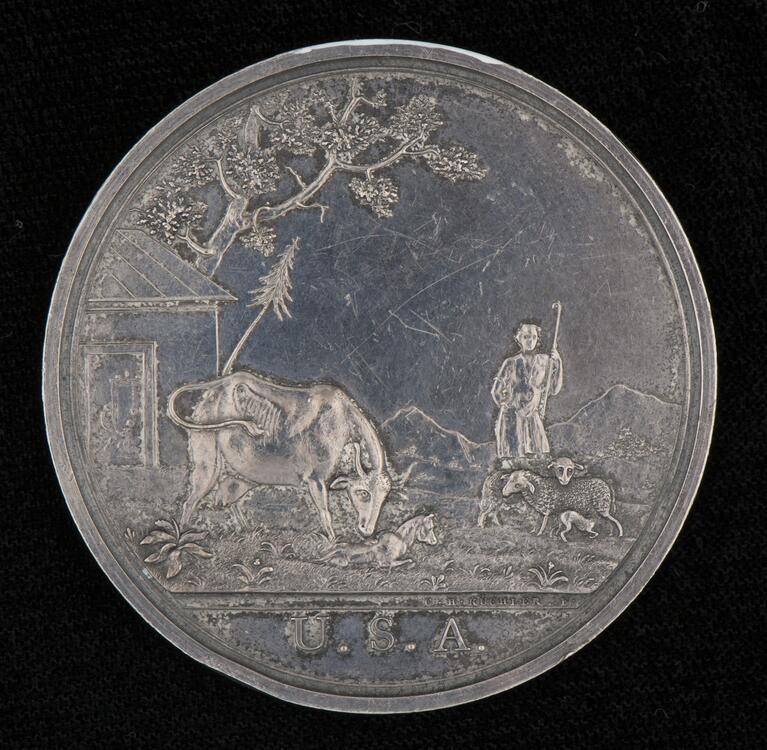

George Washington Season peace medal with "Animal Husbandry" scene / United States
Essay/Description
A George Washington Season Medal. The front is a scene showing a man raising cattle. The back says, “Second Presidency of Geo. Washington MDCCXCVI.”
Silver peace medals were given to influential Native Americans as a symbol of friendship and allegiance with the United States government. Medals were given on important occasions, like the signing of a treaty, and then only to very influential members of the tribe. The medals held even greater importance than normal during times of war or tension, particularly between the US and Great Britain. The countries would compete for the loyalty and friendship of the tribes, and a chief trading in British medal for a US one signified a change in loyalty (Prucha 2000, xiv). Gradually, the medals original meaning diminished, and they were given as rewards for good behavior. The practice was discontinued in the late 1800s.
Native Americans placed great significance on the peace medals and viewed them not only as a sign of friendship, but of power. A suggested reason for this is the connection they saw between these medals and the shell gorgets worn and decorated to represent power. The gorgets, which typically only chiefs and the elite would wear, held a supernatural power source. Images on a gorget gave the wearer the power of what the image represented. Similarly, to the Native Americans, the image displayed on the medal, the head of the president or king, gave the wearer the leader’s power (Reilly III 2011).





